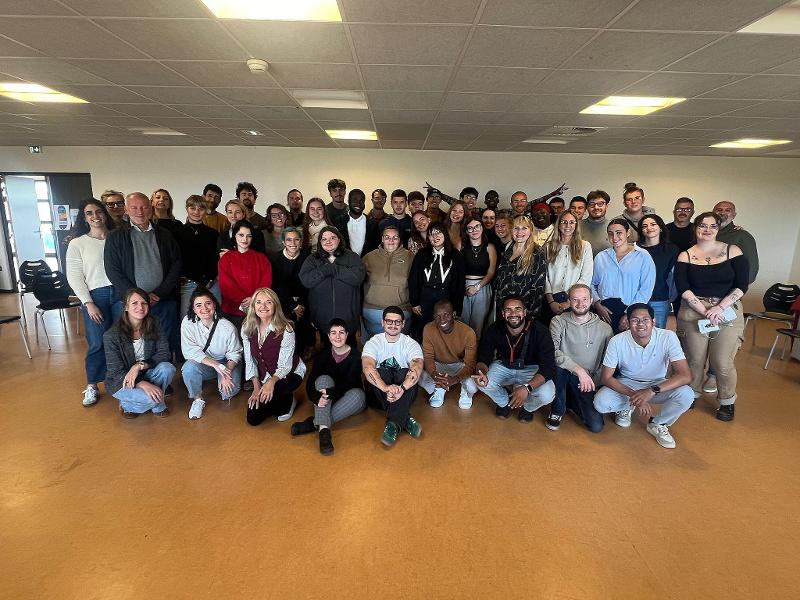Across Borders, Day Two in Calais: Facing Europe’s Borders
On 30 September, during the second day of the event in Calais, participants confronted the stark reality of the border. Between encounters with local associations, hands-on solidarity work, and the drafting of a collective manifesto, the event exposed the violence of borders while renewing the call for a new Europe

On 30 September, for the second day of the transnational event Across borders: from human rights and sustainability to the future of Europe, participants moved to Calais. Educators, young people, activists, and citizens from across Europe had the opportunity to confront one of the continent’s most brutal realities: the security-driven, exclusionary policies that the European Union continues to impose, not only on those seeking citizenship but at times even on its own citizens.
The association Association Community organized a visit to the Auberge des Migrants, a symbolic place where the daily struggle against the structural dehumanization of refugees unfolds. Here, participants could both observe and take part in the tireless work of activists: some joined the kitchen, others prepared clothes and supplies, and together they contributed to small acts of daily resistance that, taken as a whole, become acts of dignity.
During the visit, the group met several organizations engaged on the frontline of solidarity and support: the Calais Food Collective, which promotes food autonomy for people on the move; the Refugee Community Kitchen; Utopia 56, a constant presence at the border with its assistance and advocacy work; and Calais Appeal, which coordinates collective action and support for those in transit.
Calais is more than just a place on the map: it is the symbolic heart of Europe’s contradictions. Over the past decades, it has become a crossroads of migration, a site of tension, and—too often—a failed laboratory of border management policies. It is here that Europe’s fracture appears most stark: an Europe that proclaims universal rights yet builds walls; that speaks of dignity while multiplying invisibility.
The second half of the day was entirely dedicated to drafting a collective manifesto, born from the lived reality of Calais and from the awareness of the inherent violence of borders. The document is both political and symbolic: not only a denunciation, but also a set of concrete alternatives, calling on Europe to realign itself with its founding principles of democracy, justice, and solidarity.
Alongside the manifesto, the experience of Dunkerque and Calais will also be captured in an instant movie and a podcast, designed not only to recount the event but to testify to the urgent need for different, more humane border policies.
The days in Calais and Dunkerque do not represent the end of a journey, but rather a new beginning for Ways of Europe. From the manifesto’s points arises the momentum to demand that Europe become what it claims to be: a community rooted in democracy and, above all, in human dignity.
After touching the shores of Lampedusa, the Ways of Europe journey will continue on to Budapest and then Barcelona, to keep collecting testimonies, listening to stories, and building together the vision of a just place to live peacefully, as a true community.


